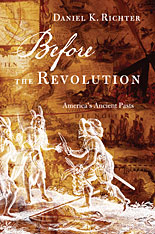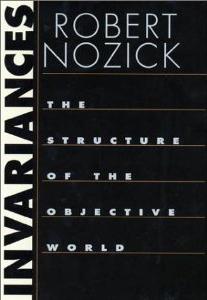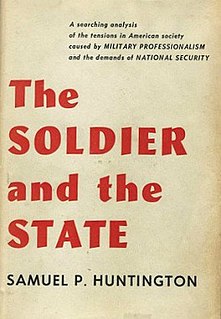 W
WBefore the Revolution: America's Ancient Pasts is a nonfiction book-length scholarly history written by Daniel K. Richter and published by Belknap Press in May 2013. It covers the stages of North America's deep historical roots well before the American Revolution, theorizing that these stages shaped recent history and the present. The book is divided into six major sections: "Progenitors," "Conquistadors," "Traders," "Planters," "Imperialists," and "Atlanteans".
 W
WBoswell's Enlightenment is a 2015 study of the Scottish biographer and diarist James Boswell by Robert Zaretsky. In the book, Zaretsky examines Boswell's attempts to grapple with "the great questions dealing with the sense and ends of life, brought into being by the Enlightenment."
 W
WThe Collaboration: Hollywood's Pact with Hitler is a 2013 non-fiction book by Ben Urwand. It was published on September 9, 2013 by Belknap Press, an imprint of Harvard University Press. It is about cooperation between 1930s U.S. filmmakers and Nazi Germany.
 W
WInvariances is a 2001 book by the philosopher Robert Nozick, his last book before his death in 2002.
 W
WJourney to the Ants: a Story of Scientific Exploration is a 1994 book by the evolutionary biologist Bert Hölldobler and the biologist Edward O. Wilson. The book was written as a popularized account for the layman of the science earlier presented in their winner of the Pulitzer Prize for General Non-Fiction in 1991, The Ants (1990).
 W
WJustice as Fairness: A Restatement is a 2001 book of political philosophy by the philosopher John Rawls, published as a restatement of his 1971 classic A Theory of Justice (1971). The restatement was made largely in response to the significant number of critiques and essays written about Rawls's 1971 book on this subject. The released book was edited by Erin Kelly while Rawls was in declining health during his final years.
 W
WNo Enemies, No Hatred is a book by Nobel Peace Prize-winning writer and activist Liu Xiaobo which contains a wide selection of his writings and poetry between 1989 and 2009. It was published in 2012 by the Belknap Press, an imprint of Harvard University Press. It was edited by Perry Link, Tienchi Martin-Liao and Liu Xiaobo's wife Liu Xia, and includes a foreword written by Václav Havel. The volume marks the inaugural English-language collection of Liu's work.
 W
WOntogeny and Phylogeny is a 1977 book on evolution by Stephen Jay Gould, in which the author explores the relationship between embryonic development (ontogeny) and biological evolution (phylogeny). Unlike his many popular books of essays, it was a technical book, and over the following decades it was influential in stimulating research into heterochrony, changes in the timing of embryonic development, which had been neglected since Ernst Haeckel's theory that ontogeny recapitulates phylogeny had been largely discredited.
 W
WProphets of Regulation: Charles Francis Adams, Louis D. Brandeis, James M. Landis, Alfred E. Kahn is a book by American business historian Thomas K. McCraw, published in 1984, which won the 1985 Pulitzer Prize for History.
 W
WThe Rhetoric of Reaction: Perversity, Futility, Jeopardy is a book by theorist Albert O. Hirschman, which styles the rhetoric of conservatism in opposition to social change as consisting of three narratives: perversity, futility, and jeopardy, and that, further, these narratives are simplistic and flawed, and cut off debate. After a historical examination of his thesis, he discusses corresponding progressive narratives, and proposes a new framework.
 W
WSasha and Emma: The Anarchist Odyssey of Alexander Berkman and Emma Goldman is a 2012 history book about Alexander Berkman and Emma Goldman by Paul and Karen Avrich. It was a New York Times Book Review Editors' Choice for 2012.
 W
WThe Scandal of Empire: India and the Creation of Imperial Britain is a book written by Nicholas Dirks, who was at the time the Franz Boas Professor of Anthropology and Professor of History at Columbia University, United States. The book was published in 2006.
 W
WThe Soldier and the State: The Theory and Politics of Civil-Military Relations is a 1957 book written by political scientist Samuel P. Huntington. In the book, Huntington advances the theory of objective civilian control, according to which the optimal means of asserting control over the armed forces is to professionalize them. This is in contrast to subjective control, which involves placing legal and institutional restrictions on the military's autonomy. Edward M. Coffman has written that "[a]nyone seriously interested in American military history has to come to terms with Samuel P. Huntington's The Soldier and the State."
 W
WThe Structure of Evolutionary Theory (2002) is Harvard paleontologist Stephen Jay Gould's technical book on macroevolution and the historical development of evolutionary theory. The book was twenty years in the making, published just two months before Gould's death. Aimed primarily at professionals, the volume is divided into two parts. The first is a historical study of classical evolutionary thought, drawing extensively upon primary documents; the second is a constructive critique of the modern synthesis, and presents a case for an interpretation of biological evolution based largely on hierarchical selection, and the theory of punctuated equilibrium.
 W
WA Theory of Justice is a 1971 work of political philosophy and ethics by the philosopher John Rawls, in which the author attempts to provide a moral theory alternative to utilitarianism and that addresses the problem of distributive justice. The theory uses an updated form of Kantian philosophy and a variant form of conventional social contract theory. Rawls's theory of justice is fully a political theory of justice as opposed to other forms of justice discussed in other disciplines and contexts.
 W
WThe Visible Hand: The Managerial Revolution in American Business is a book by American business historian Alfred D. Chandler Jr., published by the Belknap Press imprint of Harvard University Press in 1977. Chandler argues that in the nineteenth century, Adam Smith's famous invisible hand of the market was supplanted by the "visible hand" of middle management, which became "the most powerful institution in the American economy".